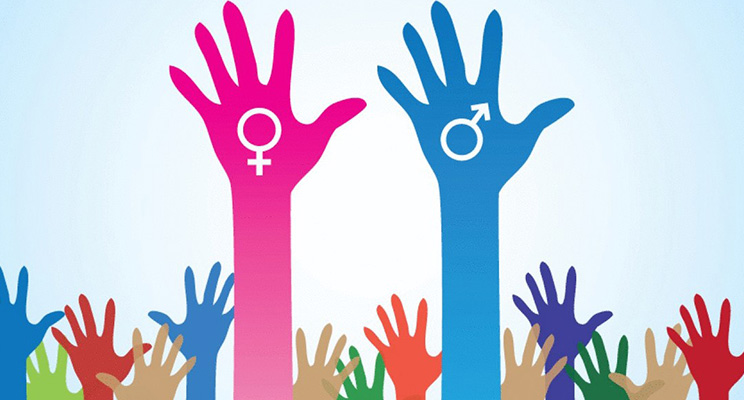
This article was first published in the Lex Witness March 2018 issue.
Gone are the days when men used to be the sole bread-winners of a family. Globalization has brought a radical change in the status of women worldwide. However, with the larger influx of women in the mainstream workforce of India, it is the employer’s responsibility to promote a gender sensitive workplace and removing the underlying factors that contribute towards creating a hostile working environment against women.
The Indian Government has been taking steps to promote an inclusive work environment via laws and amendments like that against sexual harassment at workplace and maternity benefits to be provided to women. Let’s have a look:
Prevention of Workplace Sexual Harassment
As stated by the Indian Law Ministry, it’s an Act to provide protection against sexual harassment of women at workplace and for the prevention and redressal of complaints of sexual harassment and for matters connected therewith or incidental thereto.
Highlighting the history of this Act, a renowned law firm in India noted: India’s first legislation specifically addressing the issue of workplace sexual harassment; the Sexual Harassment of Women at Workplace (Prevention, Prohibition and Redressal) Act, 2013 (“POSH Act”) was enacted by the Ministry of Women and Child Development, India in 2013. The Government also subsequently notified the rules under the POSH Act titled the Sexual Harassment of Women at Workplace (Prevention, Prohibition and Redressal) Rules, 2013 (“POSH Rules”).
The POSH Act requires an employer to set up an ‘internal complaints committee’ (“ICC”) at each office or branch, of an organization employing 10 or more employees, to hear and redress grievances pertaining to sexual harassment. Woman employed at a senior level at the workplace from amongst the employees.
[http://www.nishithdesai.com/fileadmin/user_upload/pdfs/Research%20Papers/Prevention_of_Sexual_Harassment_at_Workplace.pdf]
Internationally, various firms are taking concrete steps to cover this important dimension of making law firms as a harassment sensitive work place. In the UK, Travers Smith has initiated the “That’s not cool” movement. It is a phrase and hashtag that anyone at the law firm can use as a response to anything that a colleague has said or done that makes them uncomfortable.
Travers managing partner David Patient told an international legal media, “It is about trying to promote inclusion in the broader sense. We were trying to find a way to empower people to support each other. If someone finds something that has been said uncomfortable, they don’t have to shy away, they can say ‘That’s not cool’ and immediately the whole situation is defused. It’s not about blame or ridicule, it makes things non-confrontational.”
[https://www.thelawyer.com/thatsnotcool-travers-smith-safe-word/]
A couple of years back, Freshfields Buckhaus Deringer banned use of the term “Dear Sirs” from all its communications and legal documents. Another star international law firm, Baker McKenzie, issued an apology over the way it handled a sexual misconduct complaint made by its associate several years ago, instructing Simmons & Simmons to conduct an external review.
Now it’s the Indian legal industry’s turn, which primarily has been male dominated, to show its commitment towards its female workforce by creating a gender sensitive and inclusive workplace.
Maternity Benefits
As noted by CNBC, the Maternity Benefit Amendment Act that was enacted last year, increased paid leave time to 26 weeks from 12 weeks for women working at companies with at least 10 employees.
Additional benefits include day care facilities for working mothers, a non-discriminatory performance appraisal system that acknowledges the female employee’s absence, and work from home policies.
This is a positive step towards women and addressing and appreciating their role as the caretakers for the children. But, are we then limiting the responsibility of being a caretaker to just women?
In order to be a gender sensitive workforce, we need to also recognize that men have a want and the responsibility to be with their newly born child as well, and not be alien to the concept of fatherhood. It is only fair to provide similar benefits to the male employees, so that they can also enjoy and undertake the responsibilities that come with being a father.
Progress or Loss?
With the progress that our Indian laws have made in providing the women workforce with the benefits that they deserve, it could be easy for employers to look upon the female employees as higher cost centers, especially in situations where prospective employers are faced with male and female candidates of similar caliber.
It is now upon us to fight the urge to not just focus on balance sheets, but rather look beyond and use this as an opportunity to set new bars. Nothing else can motivate your employees more, who also happen to be your biggest internal stakeholders, than feeling being appreciated and taken-care of. The CTC versus work productivity can quadruple when incentivized in the right manner!
Ready Enough?
Does your firm ensure proper compliance in terms of such and related HR aspects? A sound advisory in order to have the most efficient tools in practice is very critical today.
I am the Principal Consultant at the Lex Witness Strategic Counsel Desk, an invitation based initiative, which caters to various entities who seek to create and improve their brand and undertake market activation strategies in the Indian legal market space. Much beyond the space of the magazine, the Strategic Counsel Desk aspires to provide a holistic framework for the firm’s positioning and business growth, primarily focusing on the strength in the Indian legal industry.








